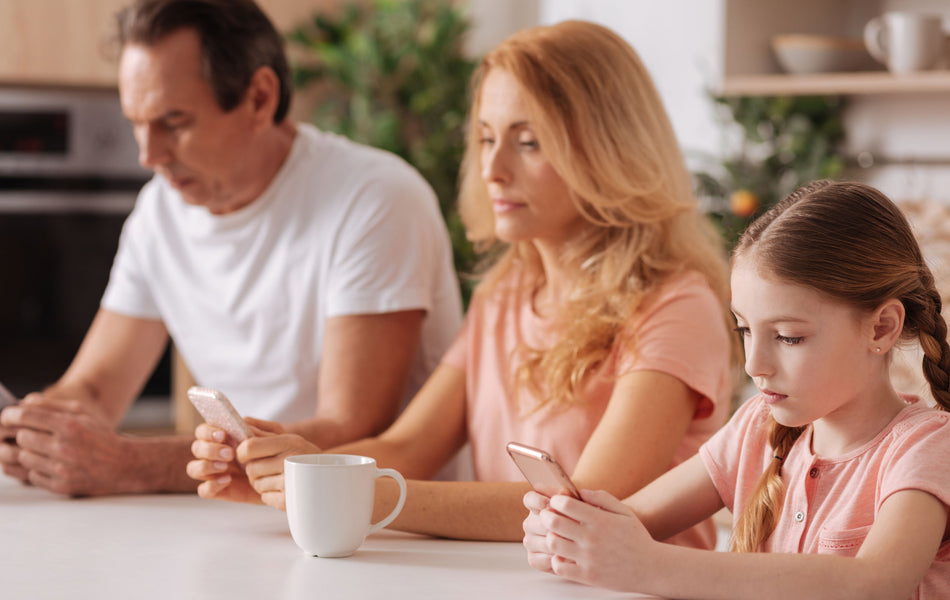 In the last five years, in my work as a health journalist, I estimate that I’ve read at least 2000 scientific studies. In all that time, with all that reading, there is one study that has left me utterly gobsmacked.
In the last five years, in my work as a health journalist, I estimate that I’ve read at least 2000 scientific studies. In all that time, with all that reading, there is one study that has left me utterly gobsmacked. The study involved more than 3000 people and looked at how they used their smartphones. It found that if partipcants didn’t have a wrist watch or an alarm clock, they had significantly less time in their lives to spend on non-smartphone leisure activities. In the study, people who reported using both a wristwatch and an alarm clock had an average of 4.71 extra hours in their week, which might not sound like much at first, but when you do the math it amounts to 245 hours a year, or about 15 waking days (accounting for the fact that we spend a third of our day asleep).
In the age of overwhelm and overwork, where people report feeling more time-poor and stressed than ever before, it’s no small thing to be donating 15 days each year to a bottomless feed of click-bait, the developmental milestones of other people’s children, groundbreaking selfies taken by work colleagues, and emails that you’re not being paid to read.
As I wrote last week in Weapons of Mass Distraction: How Your Phone Hijacks Your Behaviour, I’ve recently had a wake up call to the fact that I have a problem with my phone. All this soul-searching is the result of my semi-scientific self-experiment where I’m dedicating a year of my life to living mindfully and it was with thanks to my now daily meditation practice that I began noticing that the apps on my smartphone were essentially taking advantage of the way my brain evolved to learn, feeding me feelings of false-reward via brightly coloured diversions. I came to notice that I was using my smartphone to avoid difficult feelings. Putting off washing dirty dishes? Check my phone. Whining children? Check my phone. Feeling stressed? Check my phone.
My phone was an outsourced emotion regulation device, and it wasn’t doing a very good job.
This realisation coincided with two things. Firstly, I began reading the emerging scientific evidence that warns of lost productivity, lost brain function, lost wellbeing, lost work-life balance, lost sleep, lost human connection, and even lost lives resulting from inappropriate smartphone use. I began to wonder if the definition of addiction of “continued use despite adverse consequences,” which was given to me by addiction psychiatrist and neuroscientist, Judson Brewer from the University of Massachusetts School of Medicine, applied to my smartphone habit.
Secondly, I came across a questionnaire developed by Professor Mark Griffiths, a behavioural addictions specialist and professor at Nottingham Trent University who coined the term “technological addictions” back in the mid-1990s, way before the iPhone was even invented. According to Griffiths, if a person answers “yes” to six or more of the statements in his questionnaire, it may be indicative of a problematic or addictive smartphone use.
My score? Six…In other words. Yes, I had a problem.
But what to do? As a journalist mid-way through a major documentary shoot, it’s not like I could throw my smartphone into Sydney Harbour. Just as I’ve learned to avoid the junk-food that is all around me, I knew I needed to find a way seize the power from my iPhone and not the other way around. I wondered if my “Be Like Batman” principle that I use to try and eat well and evade temptation could also work in this situation. Unlike all the other superheroes, Batman has no special powers. Instead, he’s just a guy who has a lot of tools and tricks that make him seem supernatural. While I don’t have my own Alfred, billions of dollars, or an underground lair, I have found a number of great tools that I’ve been using to curb my smartphone use over the last month:
It’s too early to tell if I’ve managed to kick my smartphone addiction by implementing these simple changes, but the online streaming services that were depriving me of much needed sleep have less power over me, the lack of dings and pings, notifications and updates emanating from my phone make it far easier to find a flow at work, and most importantly, with far less frequency have I found myself mindlessly tapping my screen to check the time, only to emerge several minutes later from a bottomless black hole, with the sound of my four-year-old repeatedly asking me to join him in his drawing game.
In this game of me vs the developers of Silicon Valley, so far I’d say the score is Me: 1, Smartphone: 0.





 The Connection (DOWNLOAD-TO-OWN)
The Connection (DOWNLOAD-TO-OWN) My Year Of Living Mindfully - Book
My Year Of Living Mindfully - Book




